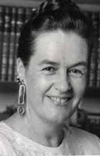INTERVIEW WITH JUDY RAY
Write a bio about yourself.

Photo: Frank Siraguso |
Biographical information always seems to begin with where one came from, or the first book, or the first significant job.
But I will go backwards, pointing out just a few of the stepping stones along the way.
Since 1997, I have lived in Tucson, Arizona, with my poet husband, David Ray. We moved here after twenty-something years
in Kansas City, Missouri. There I helped set up and direct the first three years of The Writers Place, a wonderful community
center for the literary arts. I also assisted David in his long-term editorship of New Letters magazine and with production
of the New Letters on the Air radio program.
David was on fellowships or visiting lectureships in various places during these years, and we were lucky enough to visit India,
Australia and New Zealand. I have published a prose memoir about India, The Jaipur Sketchbook, two collections of poetry, and –
with this new publication from Červená Barva Press – three chapbooks. I had come to the United States after living in
East Africa, Europe, and England, where I was born and raised on a farm.
|
Describe the room you write in.
You mean, Do I have a room of my own? Well, yes. In our small brick house here in Tucson there is a room I call "mine."
Adorning the walls are pieces of art that have special connections for me: paintings by fine artists who are friends, some of my
black and white photos, a piece of my daughter's cross stitch work, a tea towel with a printed picture of the country church in
Sussex, England, which is a part of my childhood memory, and so on. A miscellany of connections.
A computer sits on a table which is deep enough for me to push back the keyboard and write in longhand on the table's front edge.
All my creative writing appears first in longhand. But all my first drafts are not done in this room. Sometimes I sit in coffee
shops with my notebook. For a few years I met quite regularly with a couple of friends in our houses or libraries or various cafés
where we wrote together as well as talked about our writing.
Does your husband, poet David Ray, share the same writing space?
David and I share the house space, of course, and have books all over the place, but he doesn't use this room of mine for writing.
He writes in many spaces, such as his study/library which is a separate building in our back yard, or the kitchen, or the back
closed-in porch. He catches inspiration wherever it catches him.
Describe a typical writing day.
I don't think I have typical writing days. Or let's say a typical writing day would also include many other activities.
I don't have the discipline I hear about with envy of those writers who can get up early and go straight to work with
the first freshness of the day. I usually work through other commitments first – volunteer teaching, certain responsibilities
with a Quaker Meeting to which I belong, maybe some task I've taken on of editing someone else's work – before I settle to writing.
Then I have to take the time to listen to and bring forward the ideas or phrases that have been simmering as undercurrent in my
mind during all the other tasks.
Talk about the poems in your new chapbook, Fishing in Green Waters, recently published by Červená Barva Press.
I am excited by the publication of Fishing in Green Waters by Červená Barva Press. Two earlier chapbooks had obvious
themes: travel in Tangents, and my childhood in England in Sleeping in the Larder. This new one is more elusive in theme,
and maybe more mysterious for that reason. Several of the poems refer to those sparks of excitement which come from recognition
of some moment of transient beauty, or a small gesture which speaks for a historic moment. There is recognition, too, in
poems written for a newborn ("Ghazal") and for a centenarian ("Time Divided").
What are you working on now?
What am I working on now? Always new poems come along, making their own way in unplanned sequence. I like to write prose, too.
I have written several "personal essays," some of which have been published in magazines, and I would like to gather these for
a book collection. Some of these have a "first time" theme, such as the process of applying for citizenship, or calling a
crime hotline because you know both a victim and a murderer, or serving on a jury.
Where do you find inspiration for writing?
My inspiration comes from life! But I think that more than inspiration it is a matter of catching connections.
We have these thoughts that put one image next to another, but then our minds rush on to the next thing because
there is some mission to be accomplished – explaining something, perhaps, or trying to remember, or going about
a daily task. But the inspiration is there in the arcs between this thought and that, between nature and our "made" world.
Share just a few of your favorite writers that you read over and over again.
One of my favorite writers is Gabriel García Márquez, whose works I struggle to read in Spanish because he is a
wonderful stylist as well as a great storyteller, and several of his books I reread with pleasure. I would happily
reread English 19th century novelists, such as Dickens or Eliot or Austen. The poetry of Gerard Manley Hopkins is
uplifting in both spirit and language, and that of William Stafford I find rewarding for being wise as well as whimsical.
And, apart from poems by David Ray, my "secret" favorite single poem is "Those Winter Sundays" by Robert Hayden.

|

